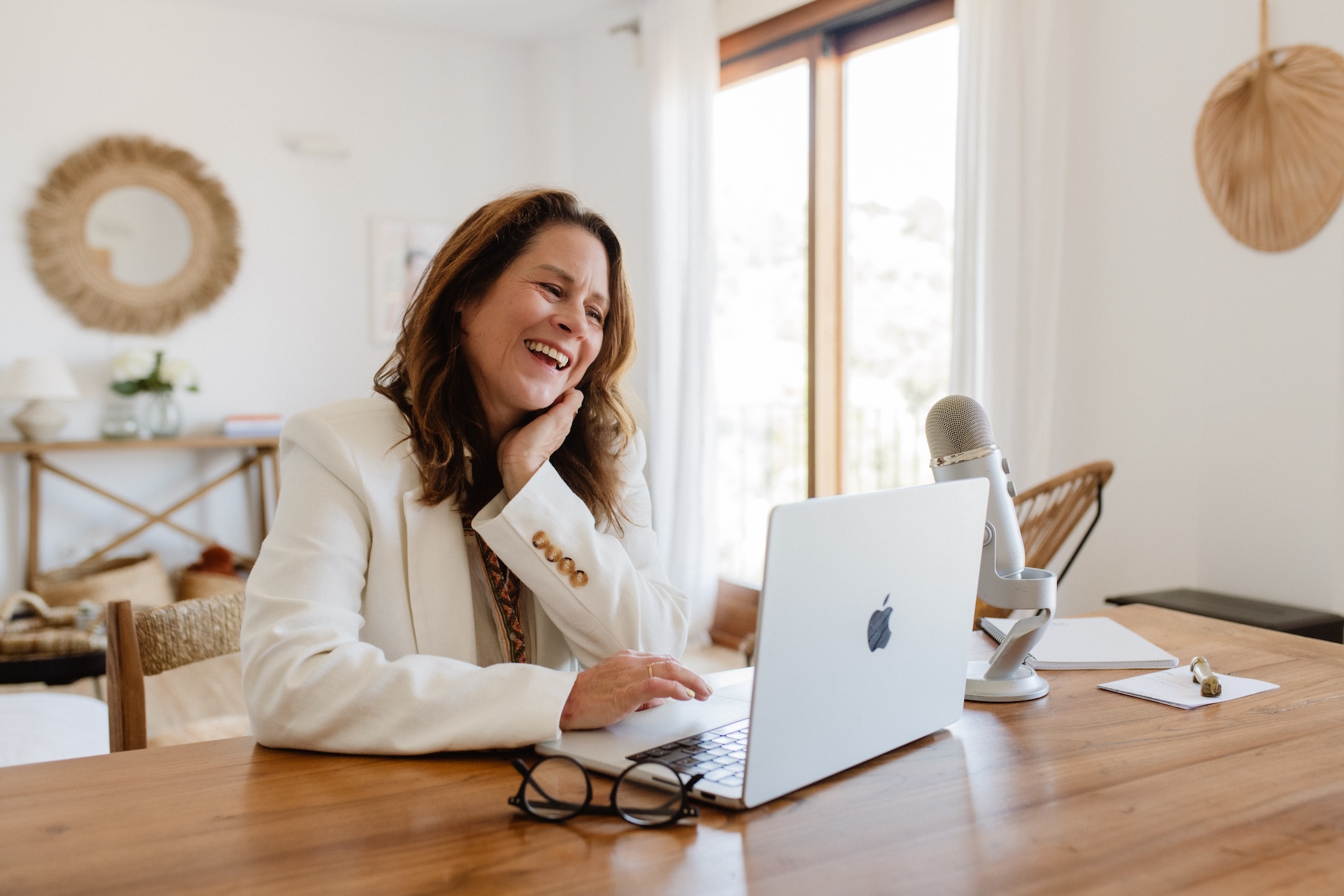Can you believe it’s been nearly 5 years since I started the Blissful Biz podcast? I started it in January 2020, and this week I published episode 232! One pretty much every week. I just checked the stats and I’ve had 109,189 downloads since I started. This is so crazy. I still get thrilled when I see my little show listed on Apple Podcasts or Spotify.
Let’s dive into how I plan my episodes and actually create new content every week!
Listen to this episode:
My Content Planning Process
One thing I love about podcasting is the structure it gives me. I know I’m publishing a new episode every Tuesday, and that’s that. No wavering, no delays. It simply gets done.
It all starts with a content calendar. I use Asana for planning and scheduling my podcast episodes, and it’s amazing.
>>> Here’s a blog post how to get started with AsanaIn Asana, I’ve created a project with a board view and columns for content ideas, scheduled episodes, editing, and published content.
Throughout the month, I capture every podcast idea that pops into my head in the “content ideas” column. At the end of each month, I sit down and review these ideas to plan the next month’s episodes. I consider strategic factors like what I’m selling that month and potential guests, but I also tune into my gut feelings about each topic. I ask myself: Which ideas light me up and make me excited to start researching? What topics do I feel my audience needs right now, even if they haven’t explicitly asked for them? Are there any ideas that keep resurfacing, almost demanding to be explored?
My Weekly Podcast Creation Process
Mondays are my dedicated podcast days. I know some people like to batch their episodes and create 6 episodes in one big long juicy session, but this just doesn’t work for me.
Here’s my typical Monday routine:
Script Development
I start with a rough outline, then use Claude.ai to help develop a full script. It’s like having a writing buddy who never gets tired or needs a coffee break. We go back and forth, refining each section until it feels just right. This process typically takes about two hours, but it flies by when I’m in the zone.
Recording
Once the script is ready, I move on to recording. I use Descript (Affiliate Link) for this phase, focusing on audio-only content. I learned the hard way that trying to look camera-ready while reading a script is not my forte. Audio-only allows me to focus entirely on delivering the content without worrying about visual distractions.
Editing
I used to have a podcast editor, but now I’m handling the editing myself, also through Descript. I love it – it’s so fast and easy and honestly just takes a few minutes. The software transcribes the audio, and then I can edit the text. When I make a mistake while recording, I pause, repeat myself, and in Descript I can just delete the words I said wrong. There’s even a “studio sound” feature that enhances audio quality, making my home office recordings sound more professional.
Equipment
For recording, I use my Macbook Pro and Blue Yeti microphone – nothing fancy. I’ve been recording in my living room, but I plan to set up a small desk in my guest bedroom for better audio quality.
Publication and Promotion
As Tuesday rolls around, it’s time for publication and promotion. I upload the audio file to Buzzsprout (Affiliate Link), my podcast hosting platform. I add the shownotes and publish it. That takes around 5 minutes.
Then, I create a blog post, newsletter content, and social media captions. I’m using Claude for this too, and it’s so amazing – honestly, it takes me less than an hour! It’s incredible how AI can support us; it makes the whole process a lot easier to handle.
Finally, I schedule the supporting content to go out throughout the week, ensuring my podcast gets maximum exposure.
Are You Ready to Start a Podcast?
If you’re considering starting a podcast, there are a few signs that you might be ready. You should have a clear message or area of expertise to share, and be genuinely passionate about your topic – enough to talk about it for hours. You need to be willing to commit to a consistent production schedule, and have (or be willing to invest in) some basic equipment. Most importantly, you should be excited about connecting with an audience through audio.
Remember, perfection isn’t a prerequisite for starting. My first episodes were far from perfect, and I still cringe a little when I listen to them. But I’ve grown as a podcast host and gotten more comfortable and confident. You really only get there by doing it!
Starting a podcast can be daunting. I spent over a year thinking about it before I finally recorded my first episode. You might find yourself doubting your authority, feeling overwhelmed by competition, fearing you won’t attract listeners, or feeling uncomfortable with your own voice. These are all normal feelings!
Remember, your unique perspective is valuable. There’s room for your voice in the podcasting world. Focus on providing value, and your audience will find you. With time and practice, you’ll become more comfortable with your voice and style.
Your listeners are there for your content, your personality, and your expertise. I promise – with time, your authenticity will shine through.
